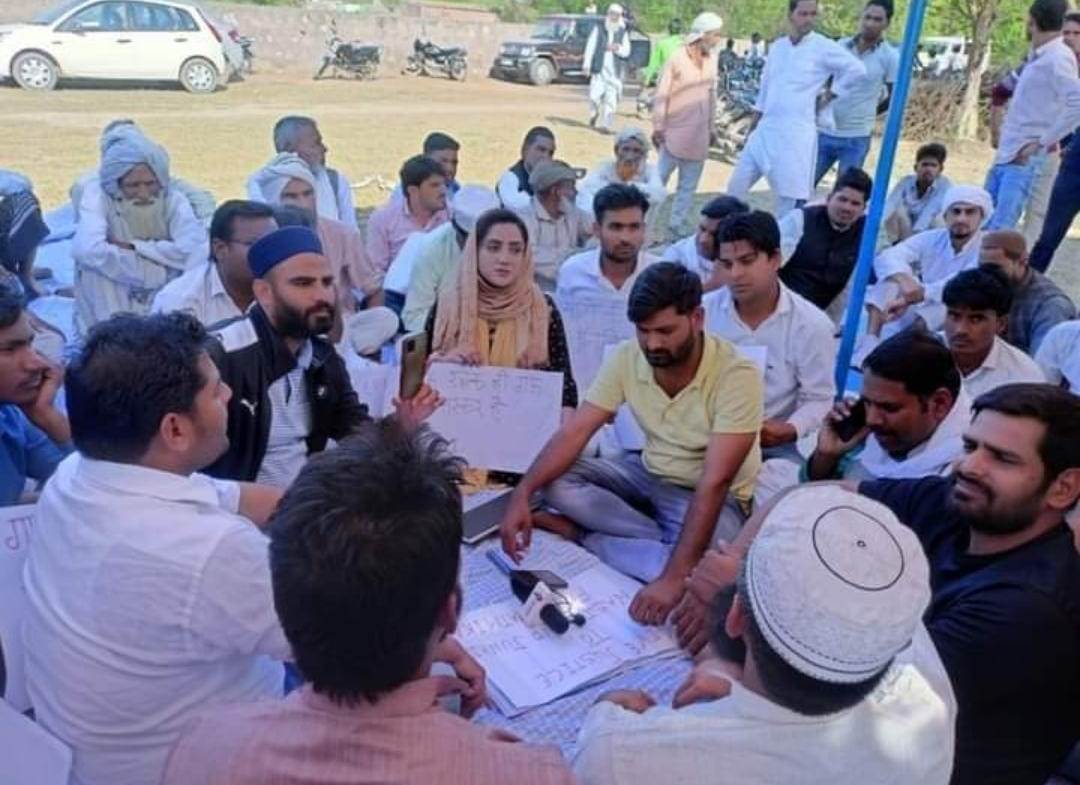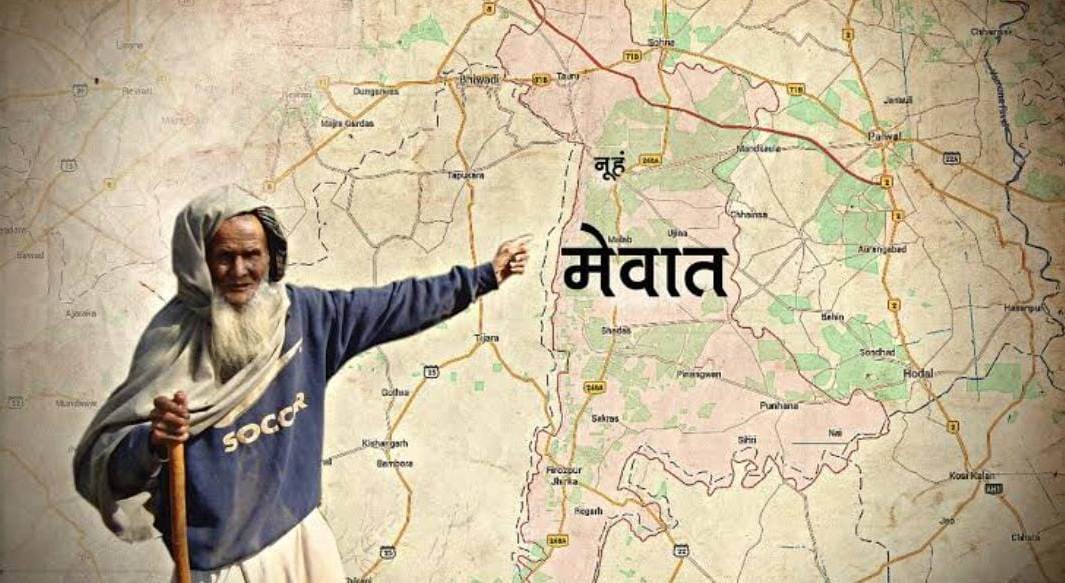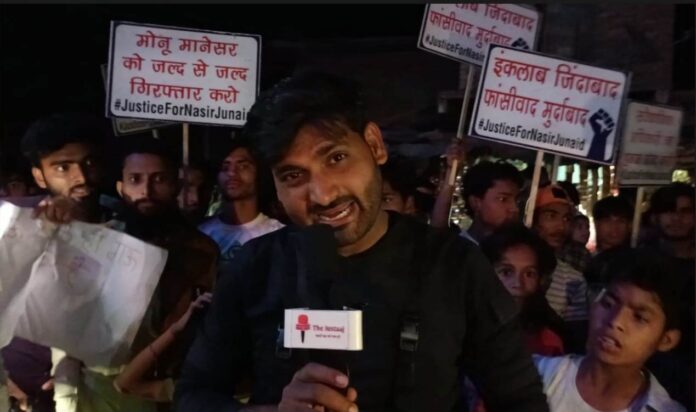Snobar, TwoCircles.net
Young voices in Mewat, where Haryana meets Rajasthan, are rising up to expose the region’s long-neglected struggles. Driven by a blend of shared identity and unaddressed social challenges, these independent journalists — belonging to diverse backgrounds — are determined to raise their community’s voice in the face of alleged media neglect.
Now officially known as Nuh, Mewat was identified by NITI Aayog in 2018 as one of India’s most backward regions. While this is partly due to poor education, awareness and infrastructure, the biggest reason for its underdevelopment — the locals believe — lies in the region’s media neglect.
Faced with this alleged media silence, the people of Mewat have decided to take matters into their own hands. Undeterred by the lack of financial support, the young journalists have picked up the mic to highlight the region’s problems. They hope that their efforts will push the government to act.
Compelled to Expose Regional Issues
Waseem Akram, a civil engineer by profession, part-time scribe and a social activist from Pahadi village in Rajasthan, views journalism not as a career but as a necessity. He has worked on the ground for years to address the pressing issues facing his community. It was his growing frustration with the alleged lack of attention from both the government and the media that led him to launch his own YouTube channel. Through this independent platform, he has focused on raising awareness about Mewat’s harsh realities — illiteracy, water scarcity, inadequate electricity supply and deeply ingrained social practices like the dowry system.
Despite the lack of financial returns, Akram continues to fund his channel out of his own pocket. He is determined to give a voice to a community that has long been ignored. “The media is biased when it comes to community-related issues,” he tells TwoCircles.net. “It often paints us negatively and overlooks our real problems. They will not cover us unless there is money involved. If the news does not attract enough viewership or financial incentive, it is discarded. That is why I decided to pick up the mic.”
Akram’s work has been crucial in drawing attention to sensitive issues like mob lynching. His involvement in the Junaid-Nasir lynching case, where two young men were burned alive by vigilantes in Haryana’s Bhiwani district, is a powerful example. He was one of the first to report on this brutal incident, despite facing challenges. He alleged that he was harassed by the police, falsely accused of stealing a scooter and even beaten at the police station.
“I was arrested on false charges while reporting on the Junaid-Nasir lynching,” Akram recalls. “They fabricated a story to silence me, but I refused to back down. I continued to fight for justice for Junaid and Nasir.”

Lack of Support
One of the most pressing challenges for these independent journalists is the lack of financial support. Unfamiliar with the significance of independent journalism, the local community also rarely contributes to these reporters’ work. Consequently, they often face feelings of isolation and discouragement. They wonder whether their efforts will ever yield change. But the daily struggles such the drinking water crisis and incidents such as mib lynchings serve as constant motivators.
Reflecting on the absence of community support, Akram shares his inner conflict: “It is heart-wrenching. But I am also inspired to do something good for my society. If everyone remains silent, change will never come. Someone has to step forward. That is what keeps me going in my work, which is all for the welfare of Mewat.”
Truth Over Money
Amir, another Mewati journalist, launched his YouTube channel to raise awareness about the region’s critical issues. With a modest income of around Rs 8,000 a month from his channel, he finds it difficult to sustain his work financially. However, his commitment to the cause is unwavering. “In our region, the literacy rate is so low that people do not even realise how much we are being neglected,” he says. “The government and leaders do nothing for the welfare of Mewat, which is why it remains underdeveloped. I want to raise awareness about issues like the lack of education and the absence of proper drinking water for more than 70 years. These problems need to be exposed.”

Amir’s efforts have faced significant challenges, especially in dealing with local authorities. “The media does not amplify our voices. The people themselves do not speak up,” he explains. “I decided to step forward and show the real situation. When I approached leaders and government officials for their statements, they would refuse to speak to me. They often asked, ‘Which news channel do you work for? Show us your press card.’ Without an official ID, they did not entertain us.”
As a result, Amir joined a local cable network channel. Despite this, Amir still faces pressure from political leaders who are uncomfortable with his attempts to reveal the region’s true issues. “Even now, I cannot expose the full reality of Mewat because of the threats and pressures from leaders. They do not want us to become the voice of the people,” he says.
Amir also touches on the financial hardships: “I barely make Rs 8,000 a month from my YouTube channel, and the media platform I work for pays next to nothing. It is a small operation, struggling with its own financial crisis. So how can they afford to pay us?”
Nonetheless, Amir is committed to his work: “I do this because I’m passionate about Mewat and its people. It’s more important to work for the truth than to work for money.”
Challenging Media ‘Silence’ and ‘Bias’
Junaid Linhinga, a 25-year-old aspiring government employee from Mewat, has also picked up the mic to challenge the narratives put forth by mainstream media. He explains how media outlets often misrepresent incidents in Mewat and amplify negative stereotypes while ignoring the realities of the region. To counter this bias, he launched his own YouTube channel and dedicated himself to documenting and sharing the truth of his community.
“In Mewat, things are not as exaggerated as the mainstream media portrays,” he asserts. “They paint us as a backward, violent place. But that is not the full story. For now, I want to focus on raising the real issues, not on making money.”
The efforts of independent journalists like Waseem, Amir and Junaid stand as a testament to the power of local voices.


